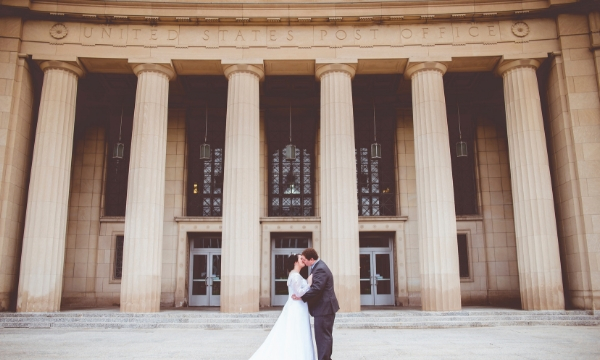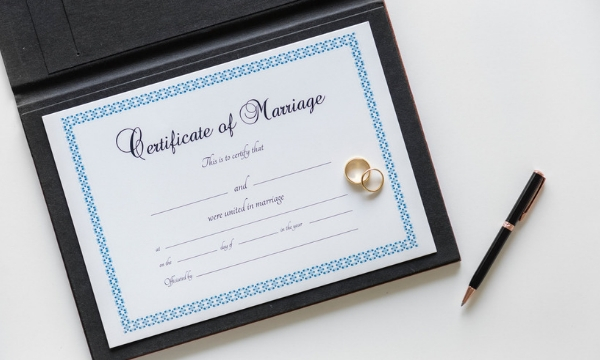Getting married is one of the most exciting events in anyone’s lifetime, but there are still some official documents you must obtain to do it legally. In order for your marriage to be recognized by local and state government, you must first obtain a marriage license from the local courthouse, and make sure that you and your fiancé meet all the requirements to do so.
Who Can Marry in the United States?

Marriage laws in the U.S.A. can vary widely, as these are set and enforced by state governments. In the U.S., citizens who are not closely related (such as an aunt or uncle, parent, grandparent or sibling) may get married. Non-citizens are able to get married in some states with a valid tourist visa if they meet other requirements. Some states will allow first cousins to marry, but marriage requirements are always determined by local and state government, so they are almost never the same across state lines.
As of 2015, all states also allow same-sex marriages. You do need to make sure any existing marriage is legally ended before applying for a new marriage license.
Make Sure You Adhere to Age Requirements
One of the requirements the state will decide is at what age you may legally marry there. Most states require you to be 18 to marry without parental consent, but a couple has set the age at 21. For example, Mississippi requires consent if you are under the age of 21. Nebraska requires it until the age of 19. Some other states allow even younger people to marry with parental consent.
Applying for a Marriage License

Before you can get married legally, you must first apply for and obtain a legal marriage license from the local courthouse. An application will need to be submitted along with verification of your ages and identities, and a fee is often required. You should call the local courthouse to verify the documents you need, but a passport or state-issued identification and birth certificate are typical documents they will request. If you have any prior marriages, you’ll also need to provide a copy of your divorce decree.
Some states will require a waiting period of 24 to 72 hours before you are allowed to marry, and others will issue them immediately upon processing the application. Depending upon the location, you may be able to fill out the application online as well, but you will still need to go to the courthouse in person to provide your documents.
Information included on a marriage license application includes full names of the two parties, birth dates and places of birth, vocations, Social Security numbers, names of parents and their places of birth.
Expiration of Marriage Licenses
Once you are issued a marriage license, there is only so much time you have to get married before it expires. This is true in most states, and the time is typically 30 to 90 days. Oklahoma only gives you 10 days and New Mexico, South Carolina, Georgia, Idaho, Mississippi and District of Columbia do not put an expiration date on their marriage licenses.
You will need to have the person who officiates your wedding sign the license as well as two witnesses to finalize the marriage and give to the courthouse to get your legal marriage certificate.
Eligibility to Perform Weddings
Another thing you need to pay attention to is permissions on who may marry you. Some states say you can have anyone perform the ceremony; others will need you to find a member of the clergy, government employee or judge who is an ordained minister or otherwise approved to marry a couple by the state. Many times, a person may be able to complete a short online class and questionnaire to become ordained to perform a marriage ceremony, if you have a non-ordained person in your life you’d like to perform your ceremony.
After you submit the signed marriage license to the local courthouse, you will receive your marriage certificate for personal filing purposes. This process can take days to weeks, depending upon the local backlog of public marriage records. Your local court clerk can help you navigate the process, and advise you of how to proceed to legally change your name if you choose.












![Best Crochet Hooks for Beginners and Pros [2020 Update] best crochet books](https://www.awebtoknow.com/wp-content/uploads/2018/01/best-crochet-books-100x70.jpg)

